megoreshet מגורשת
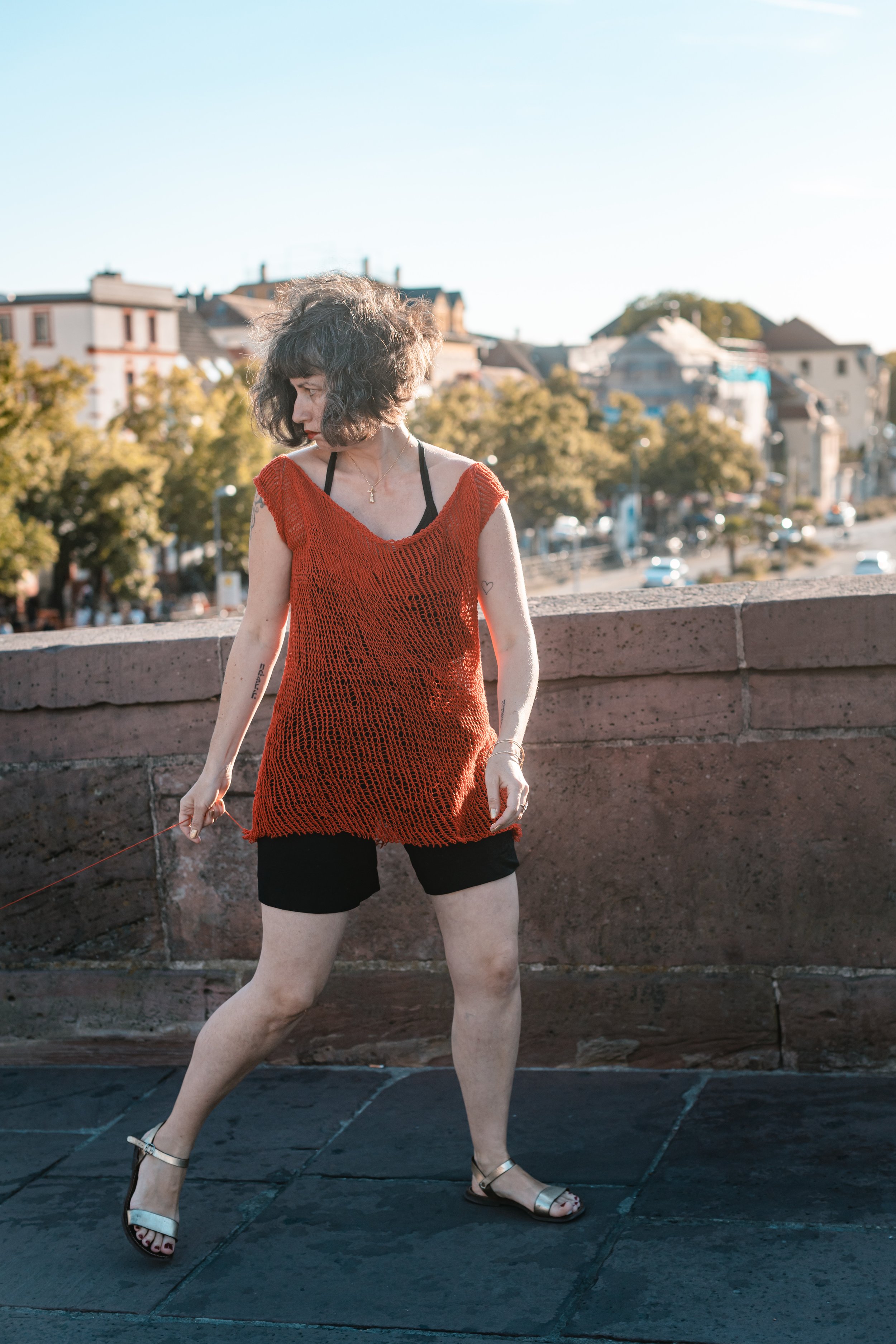

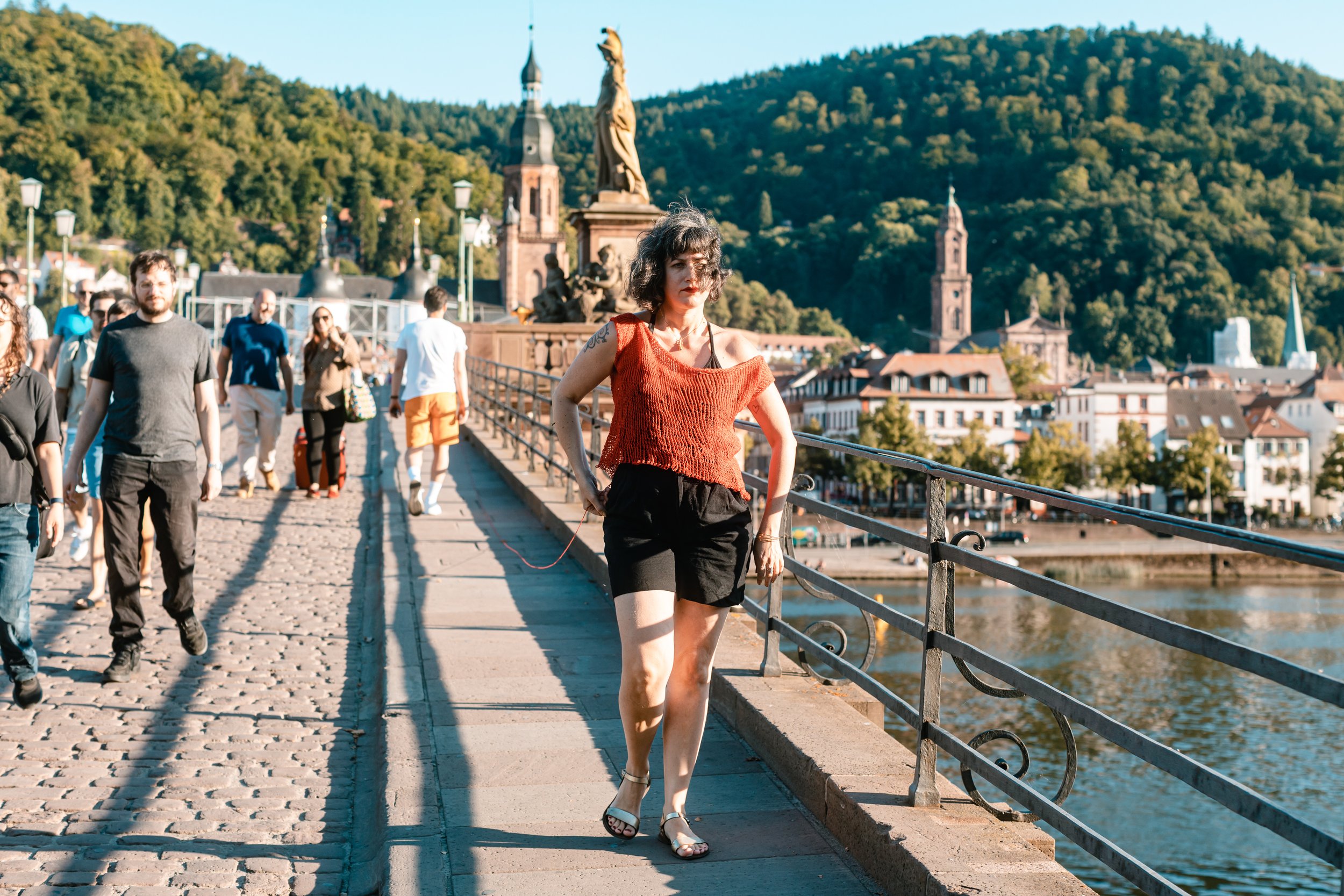
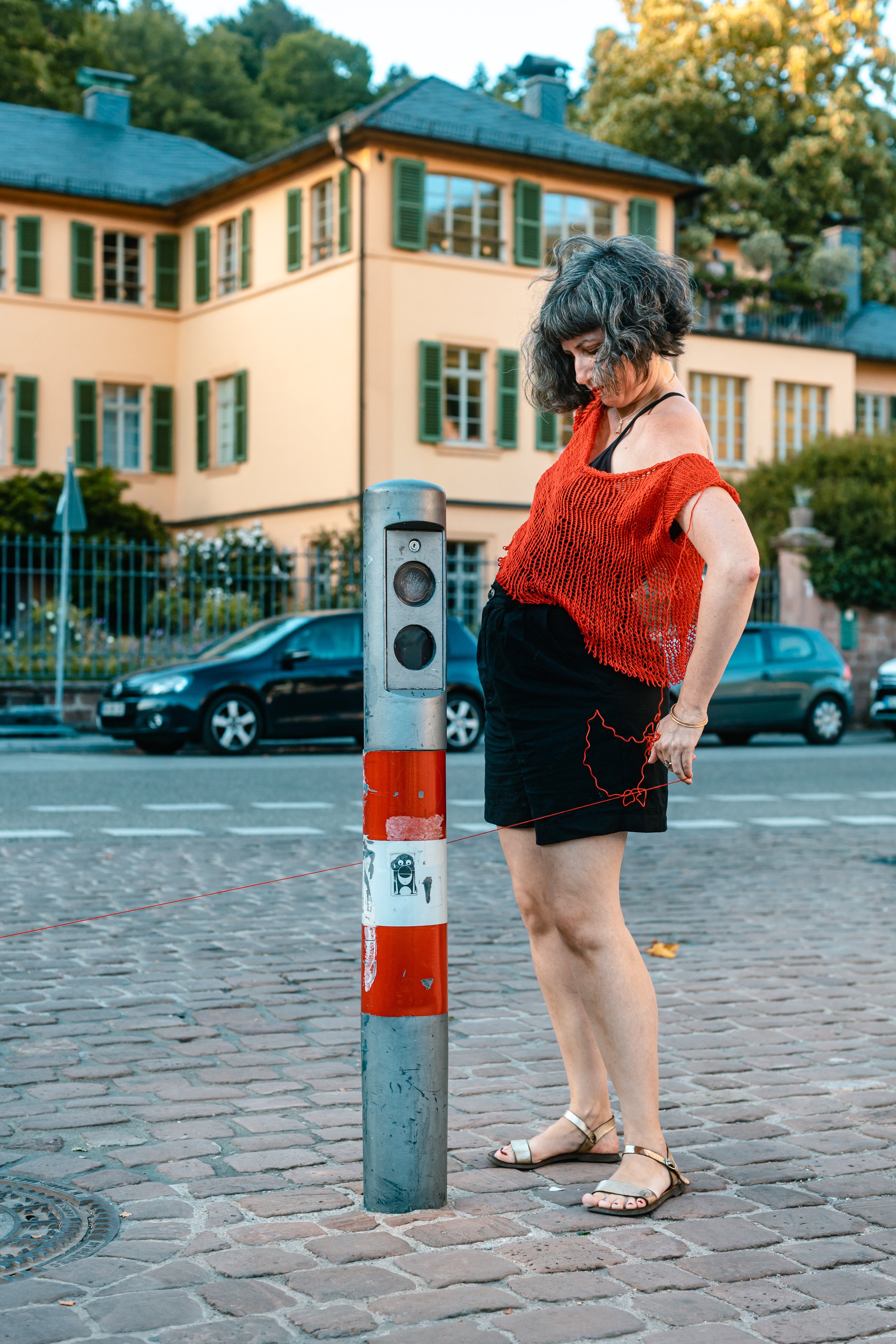


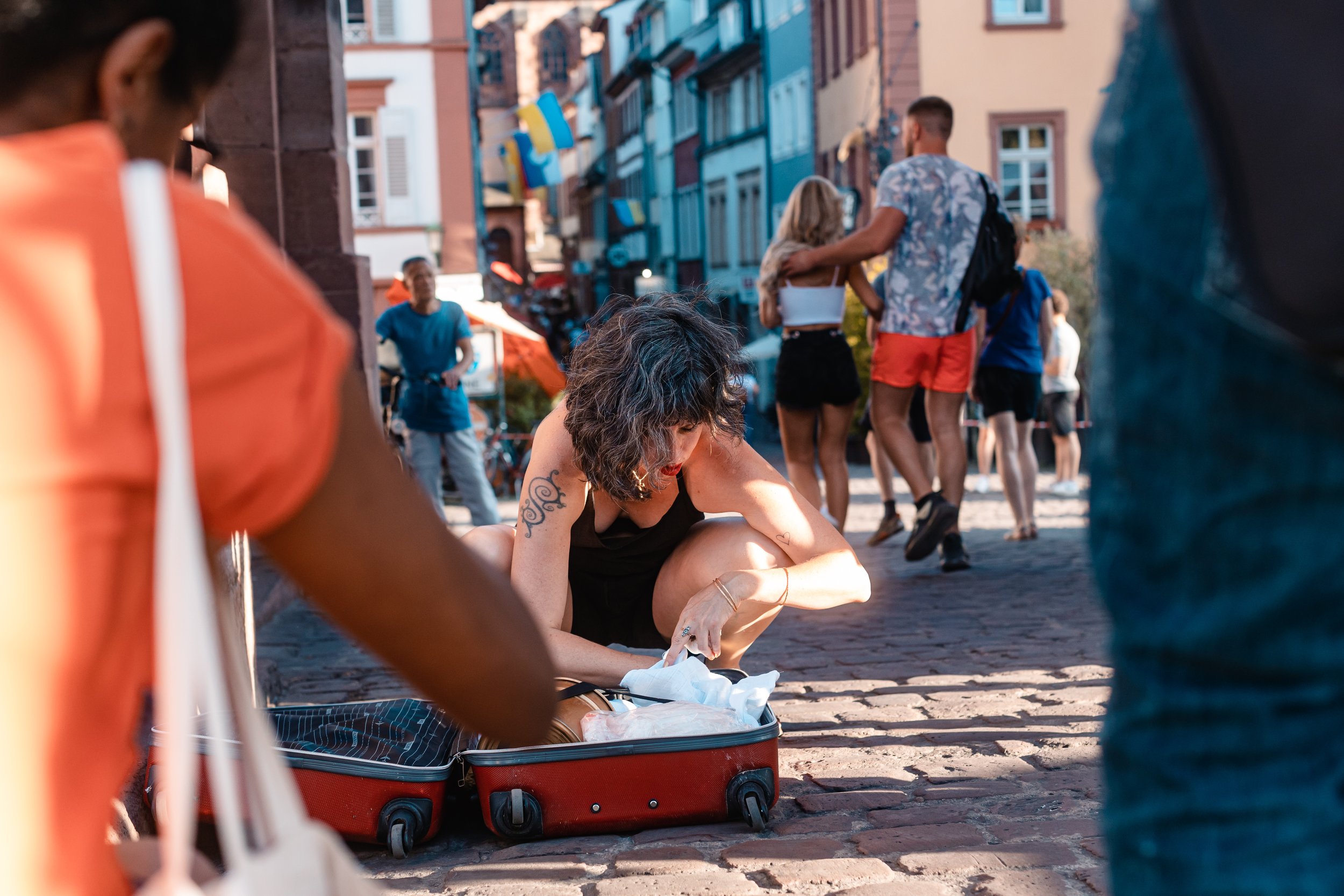
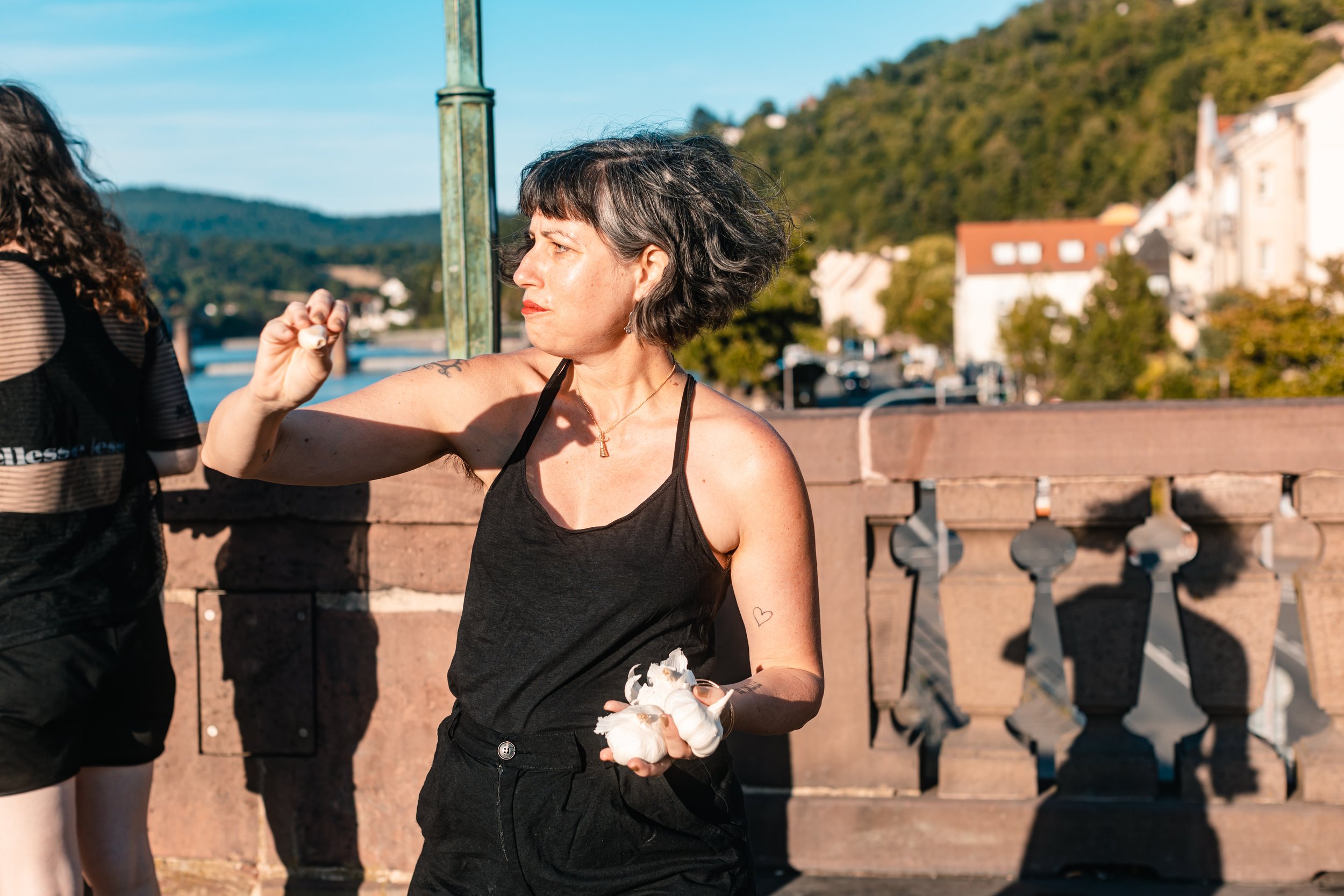

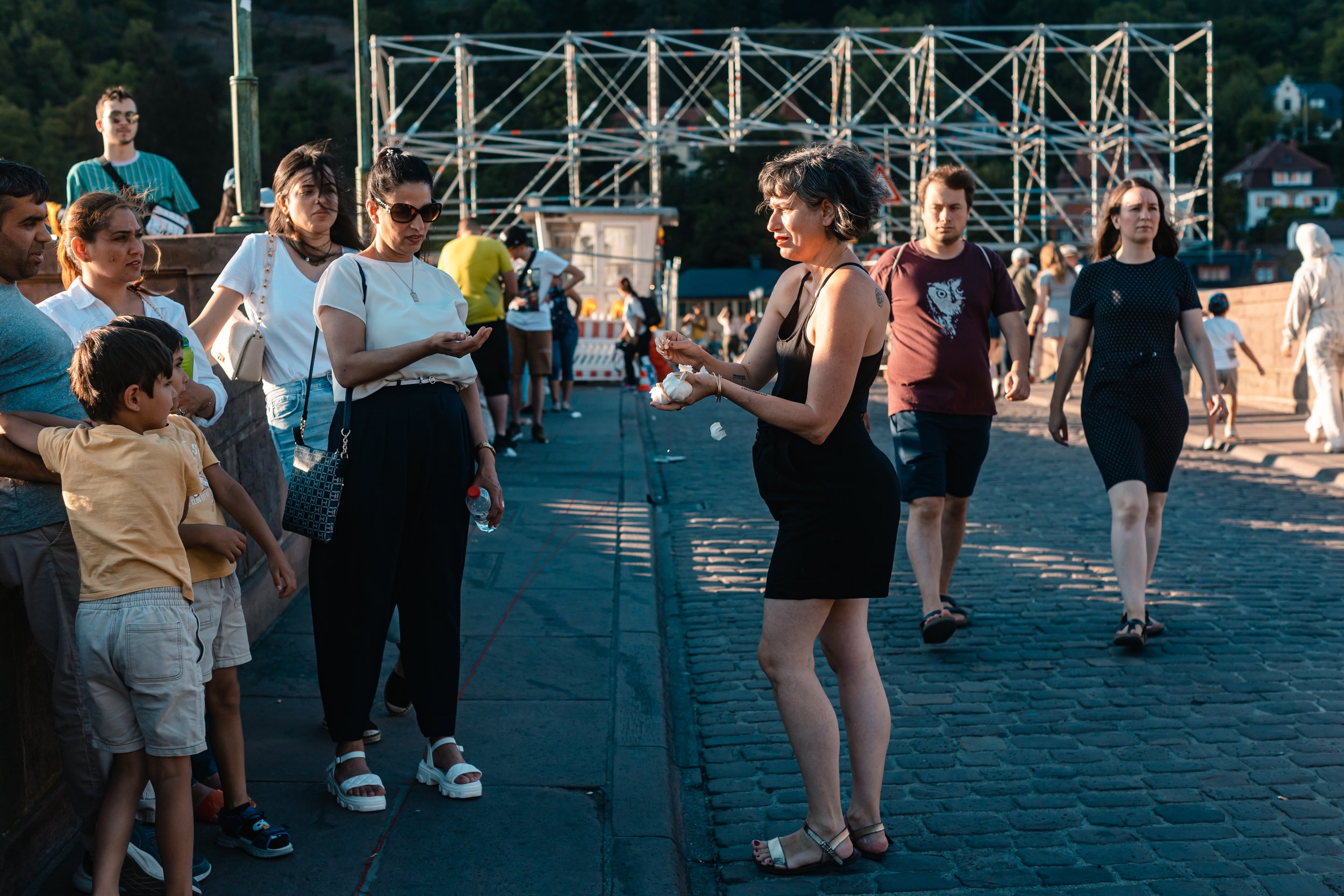







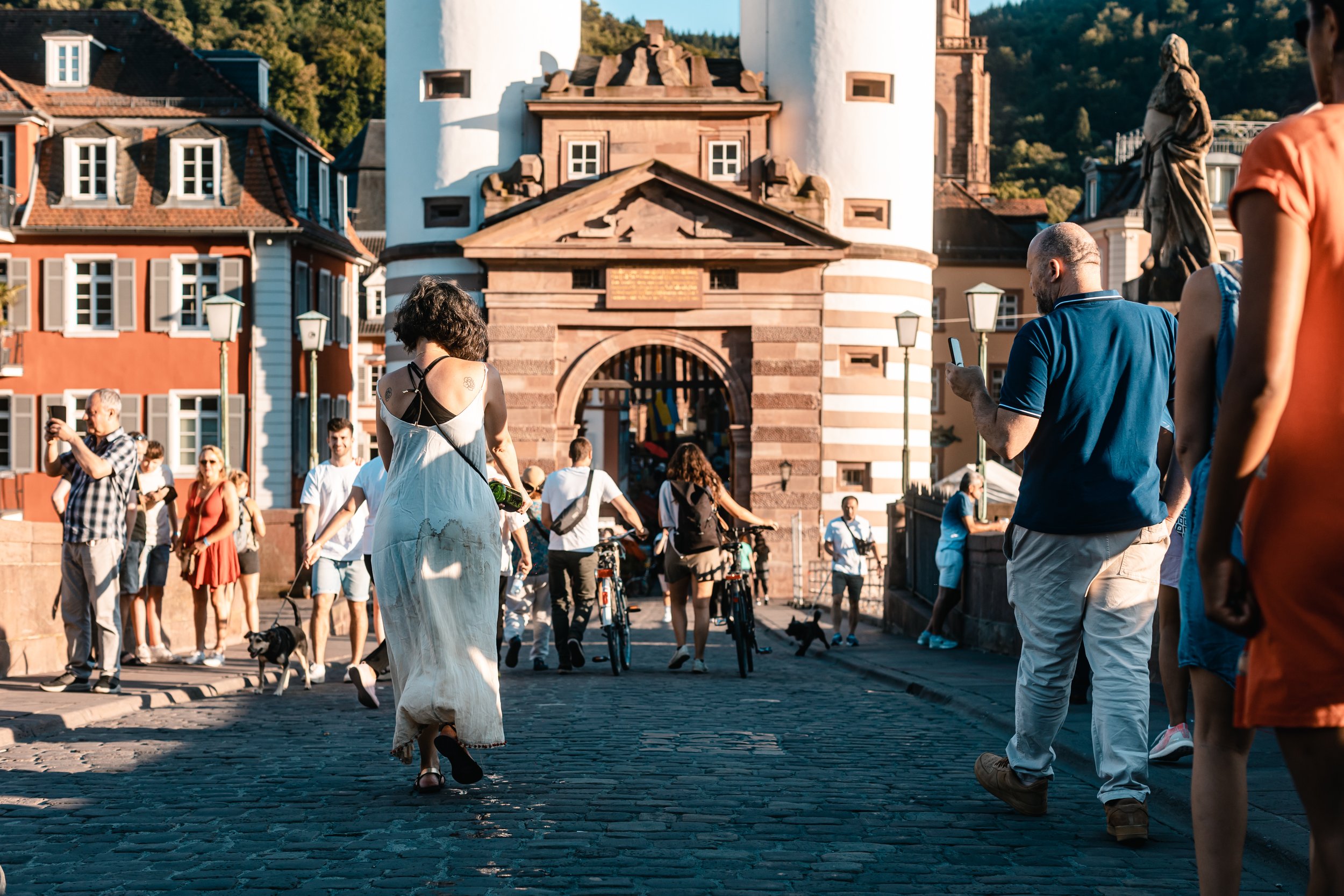
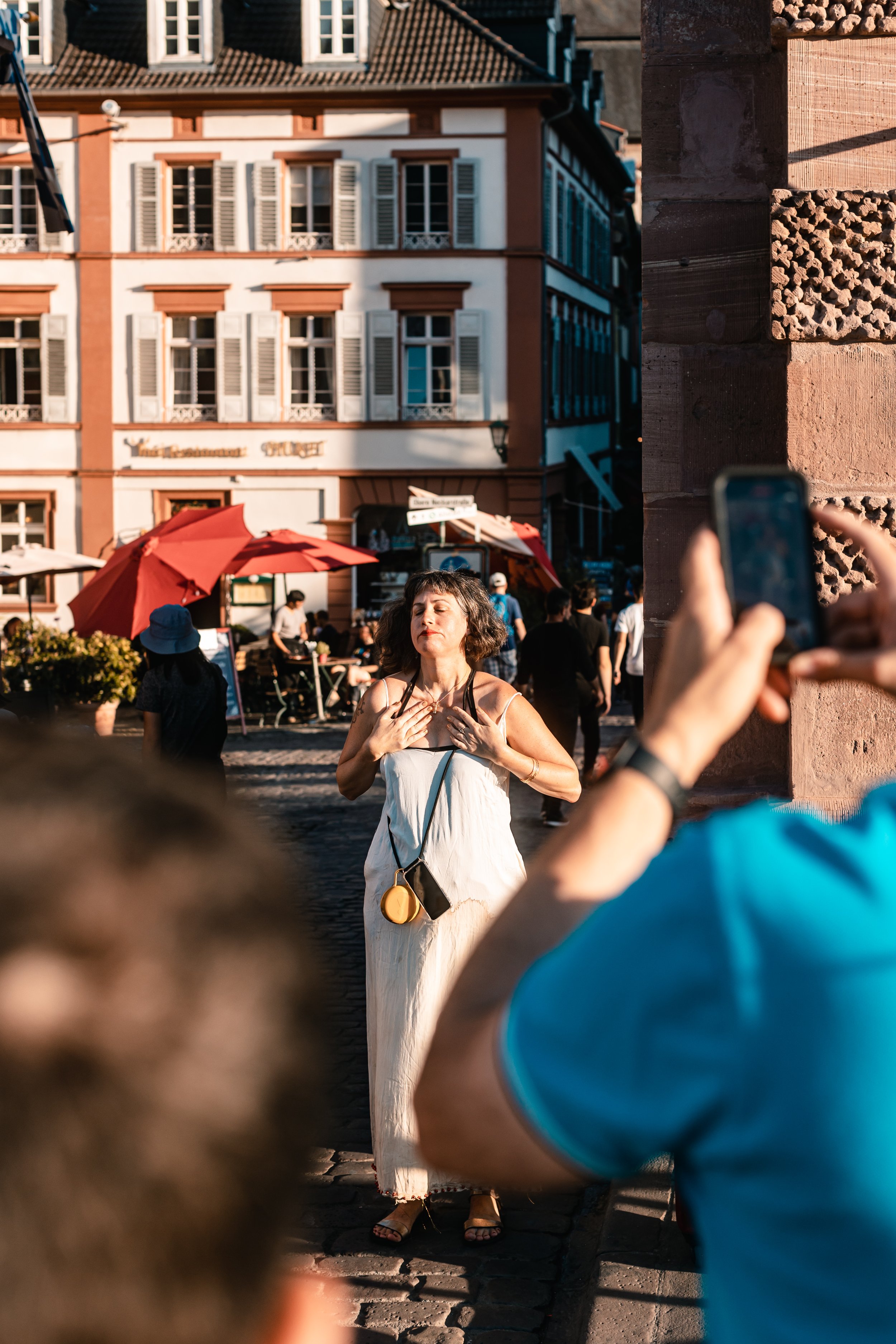
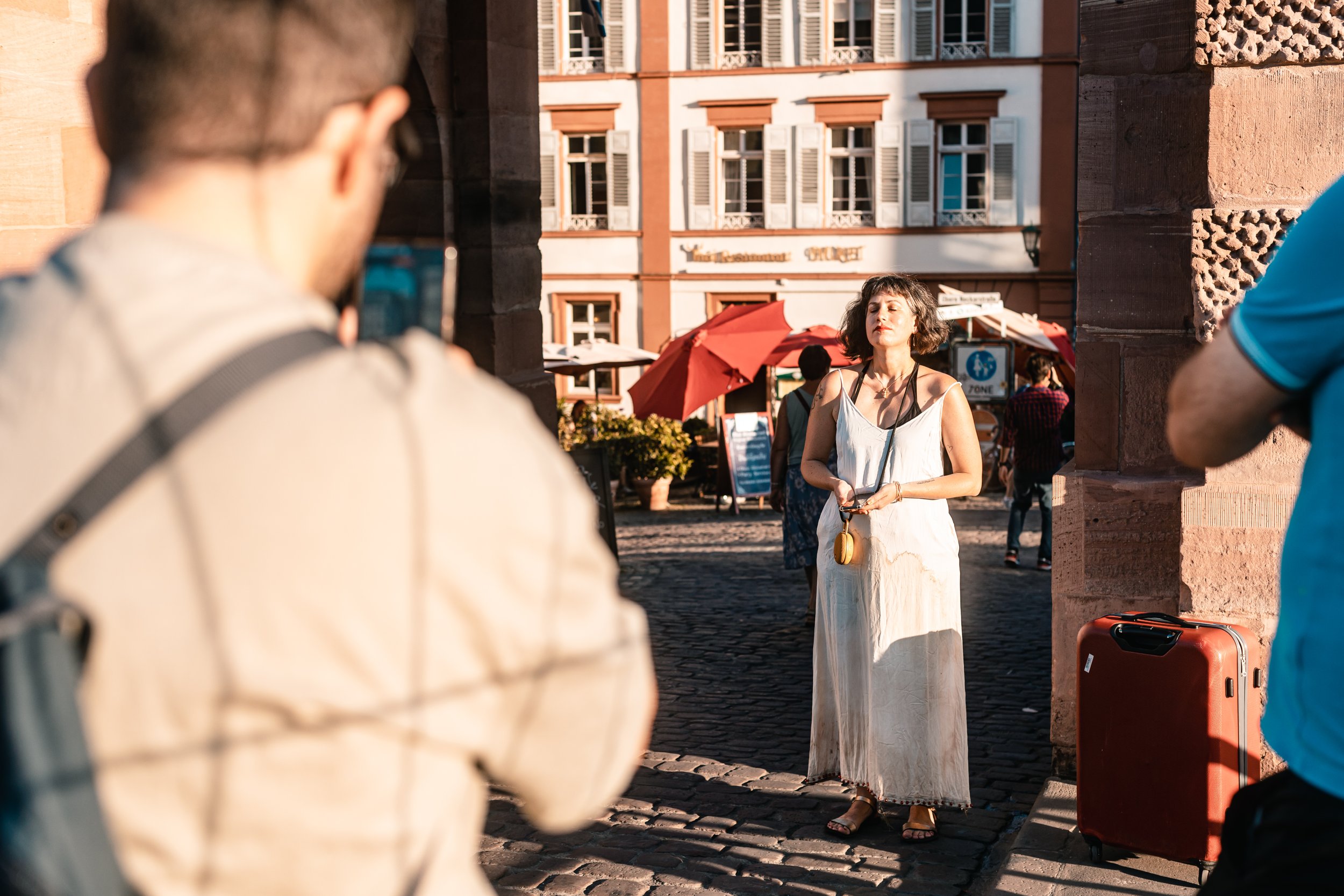
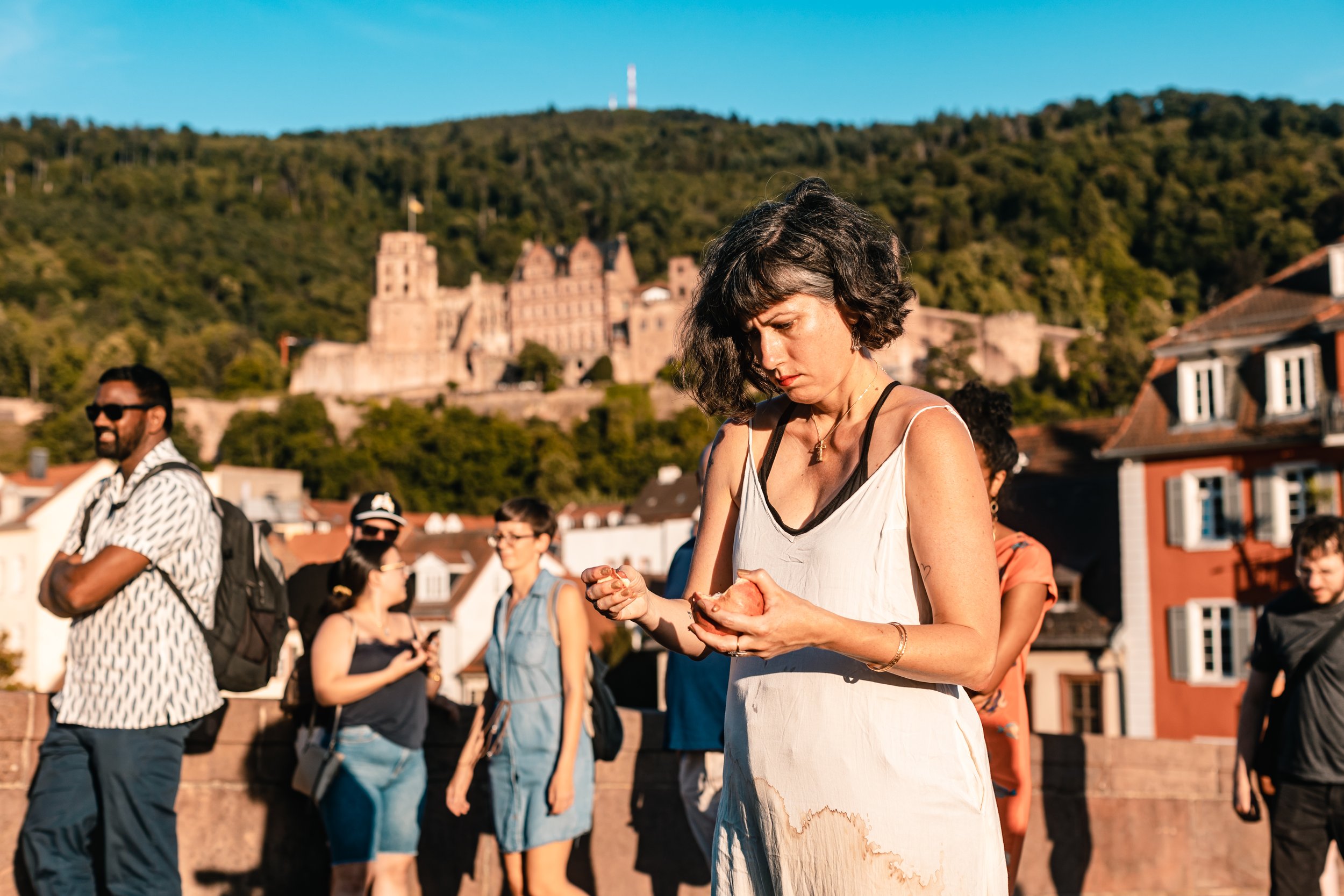
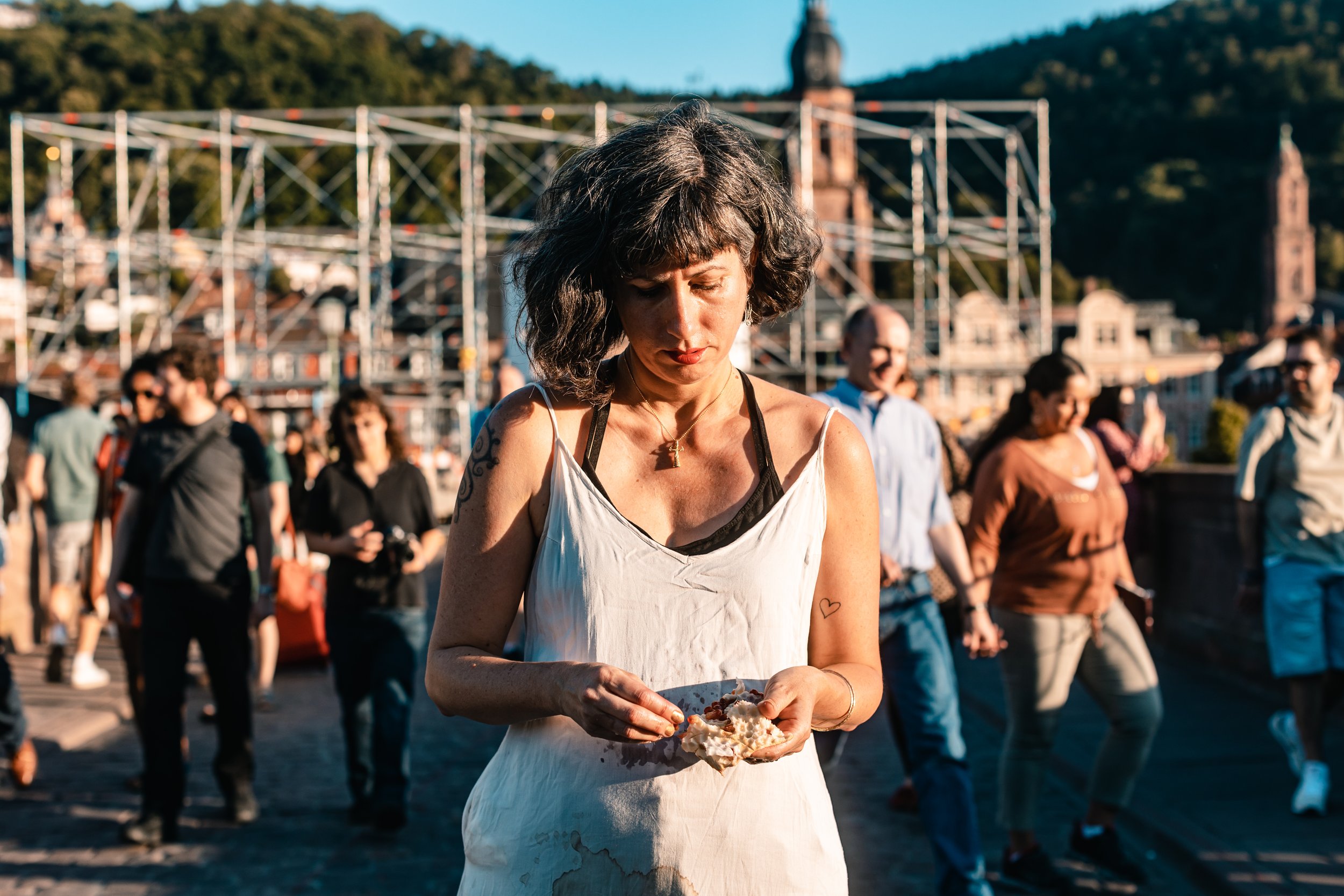
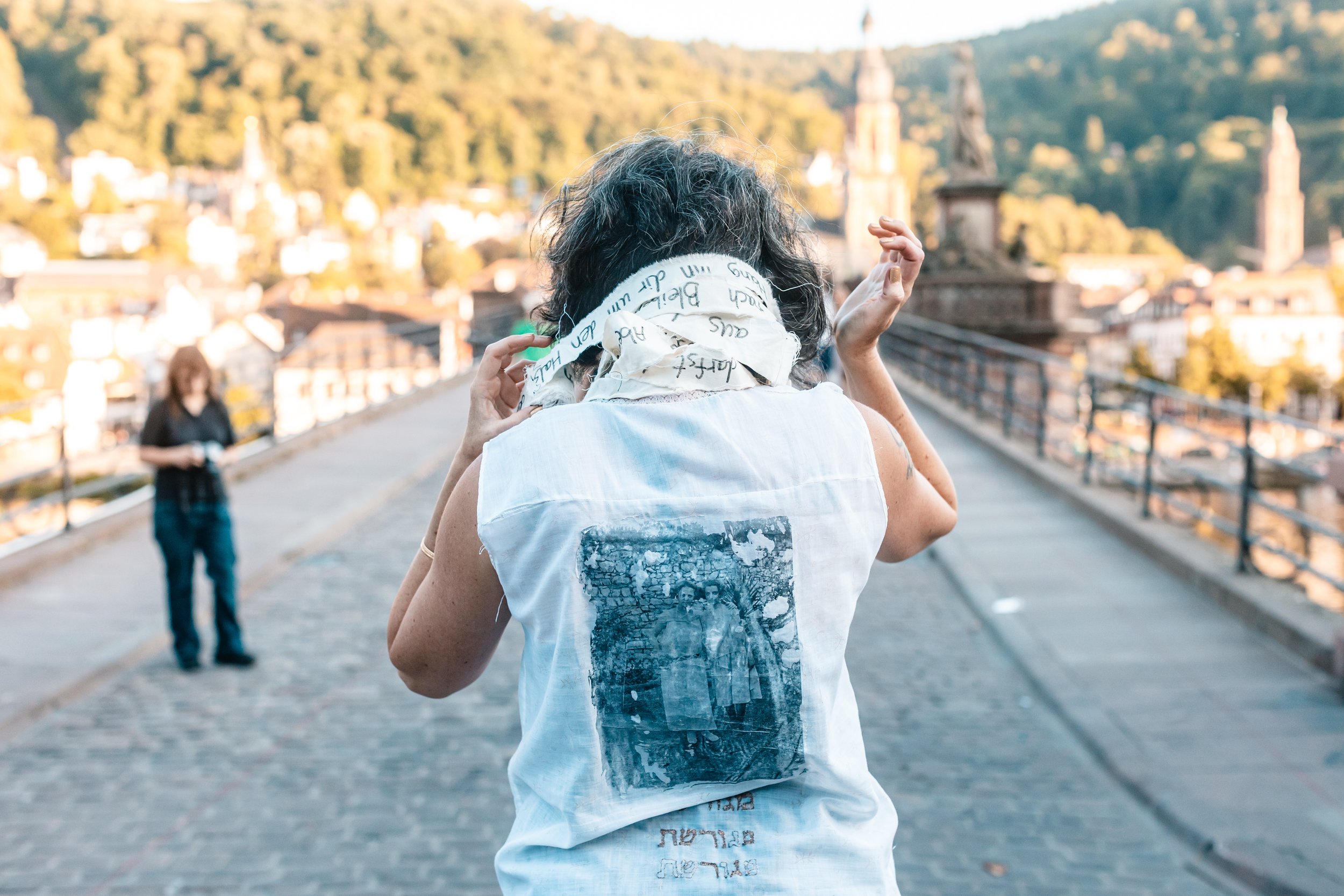
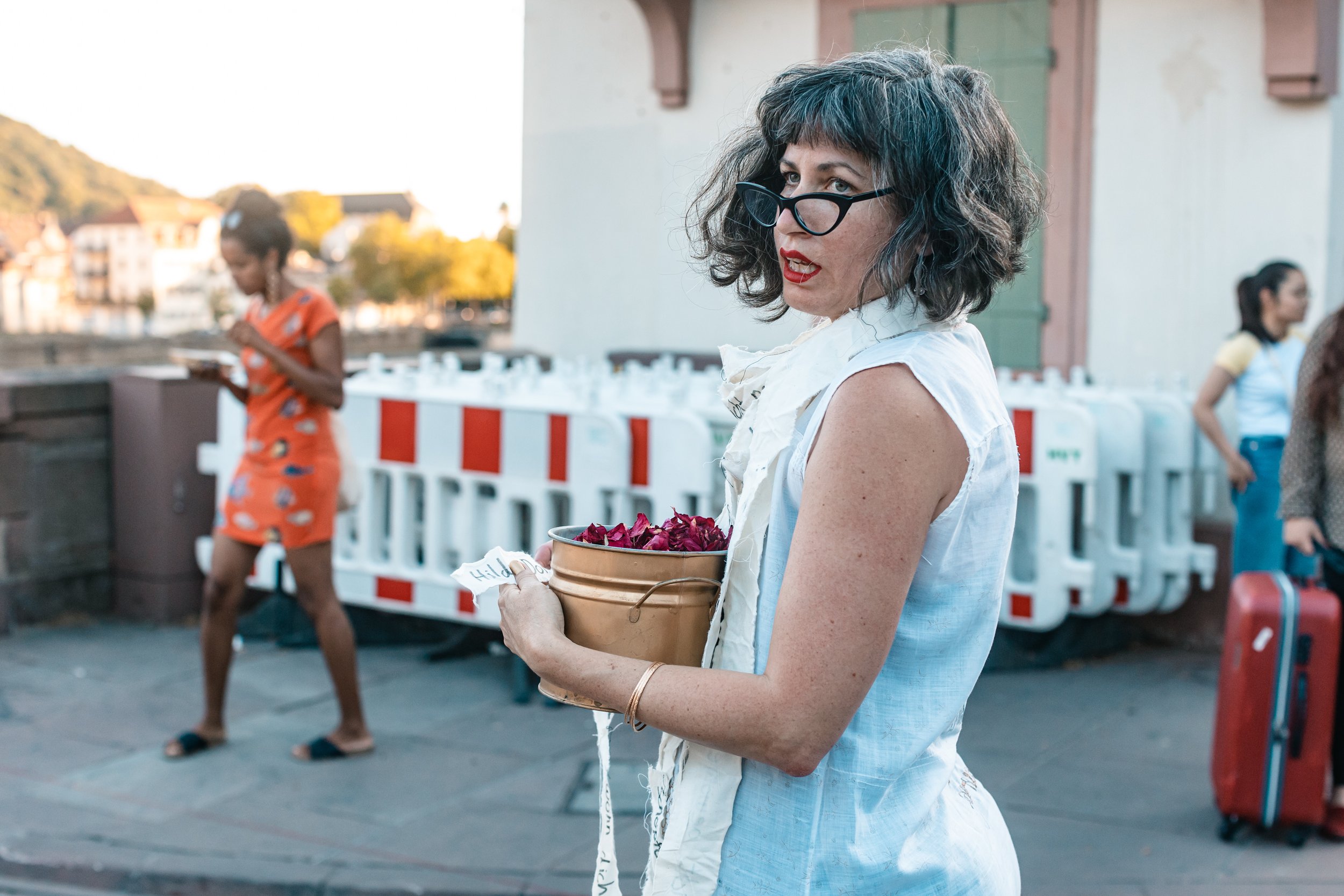
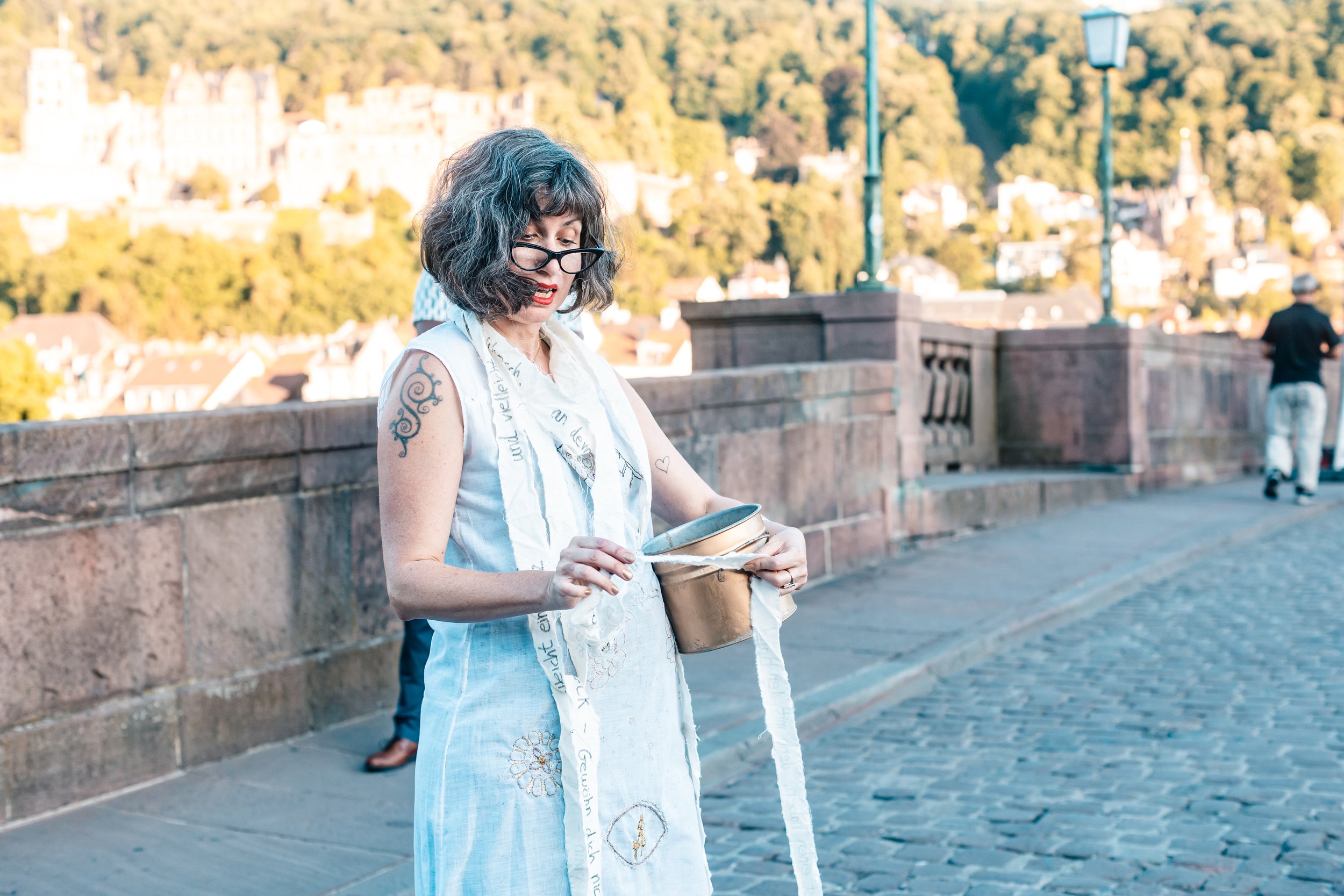
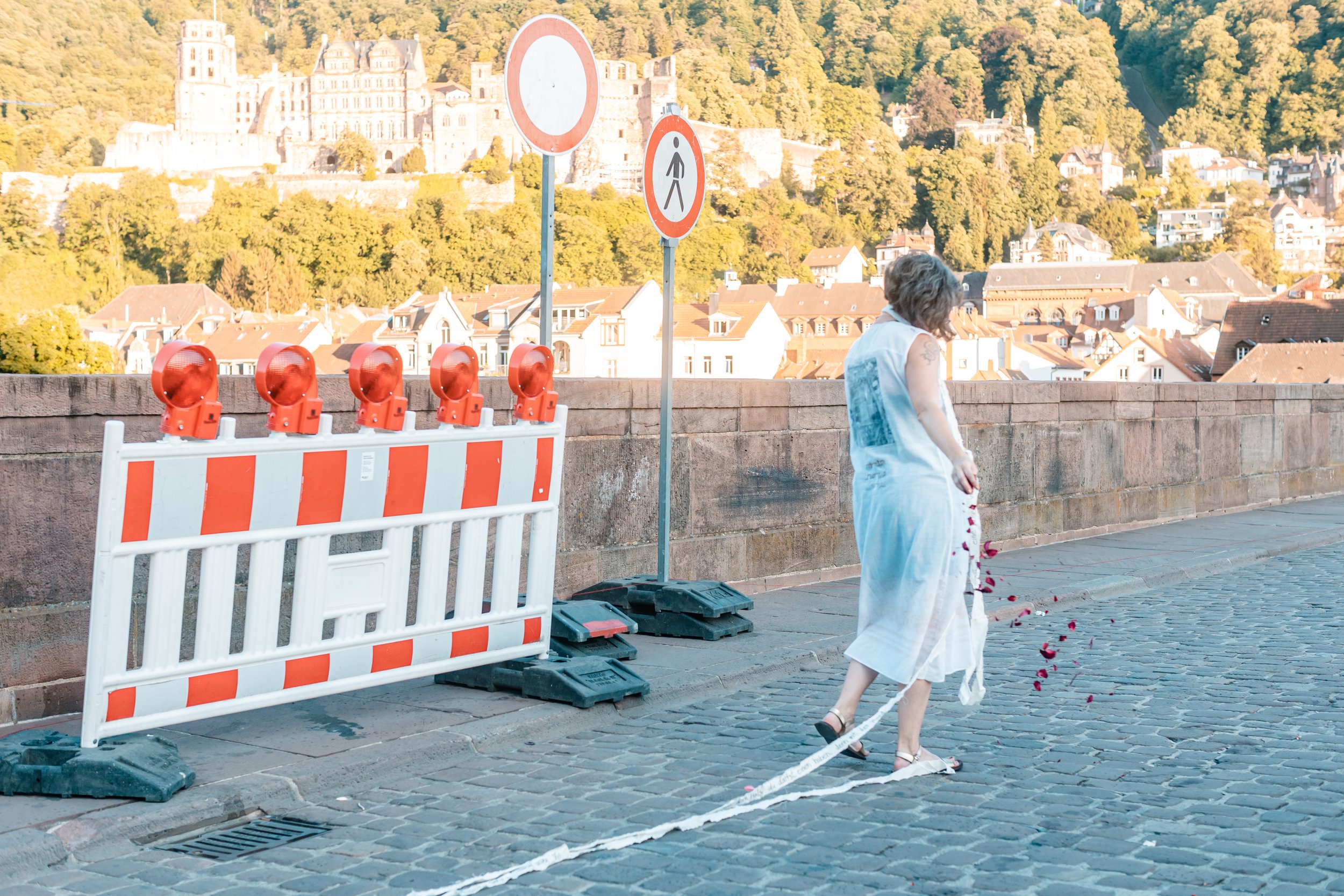
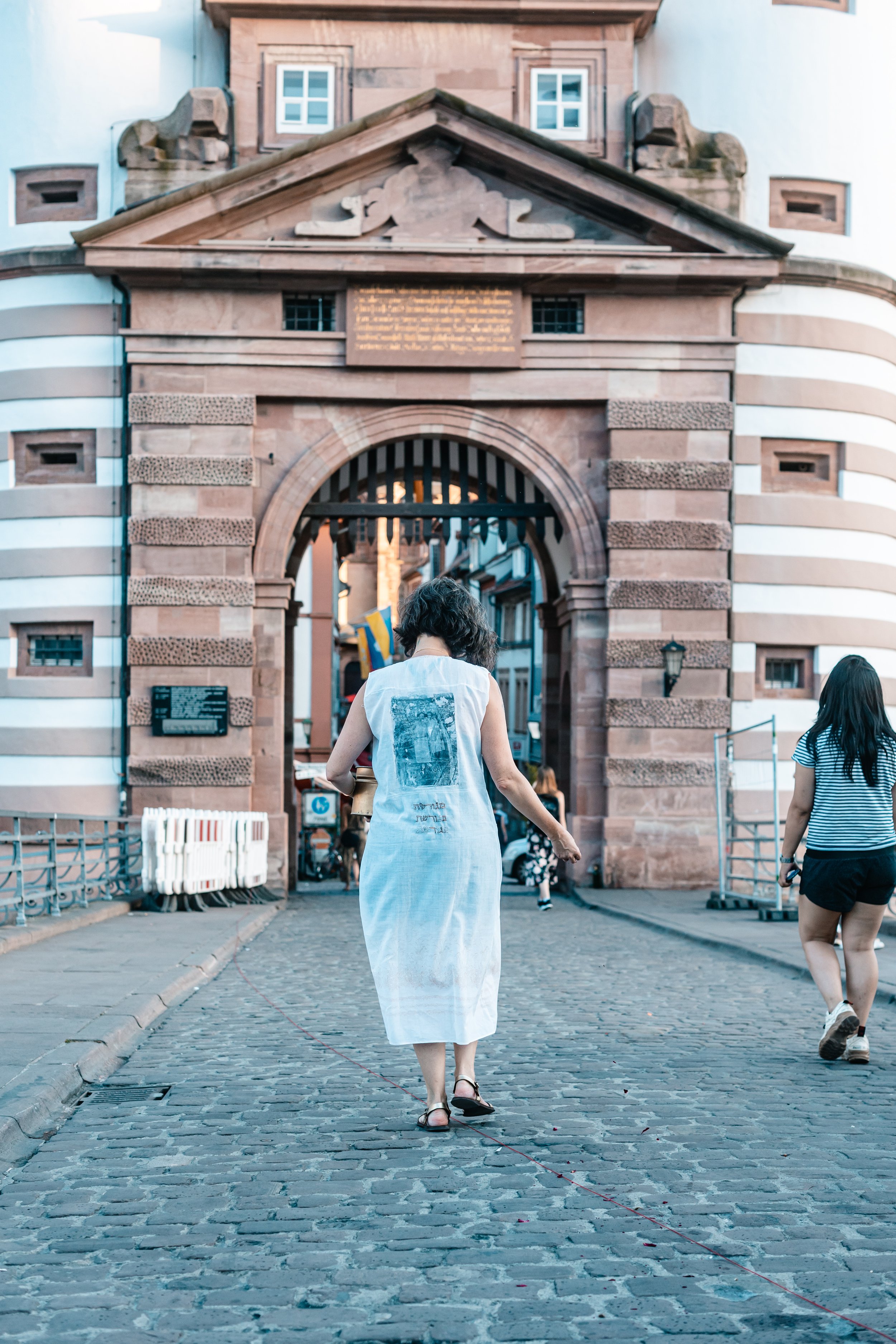
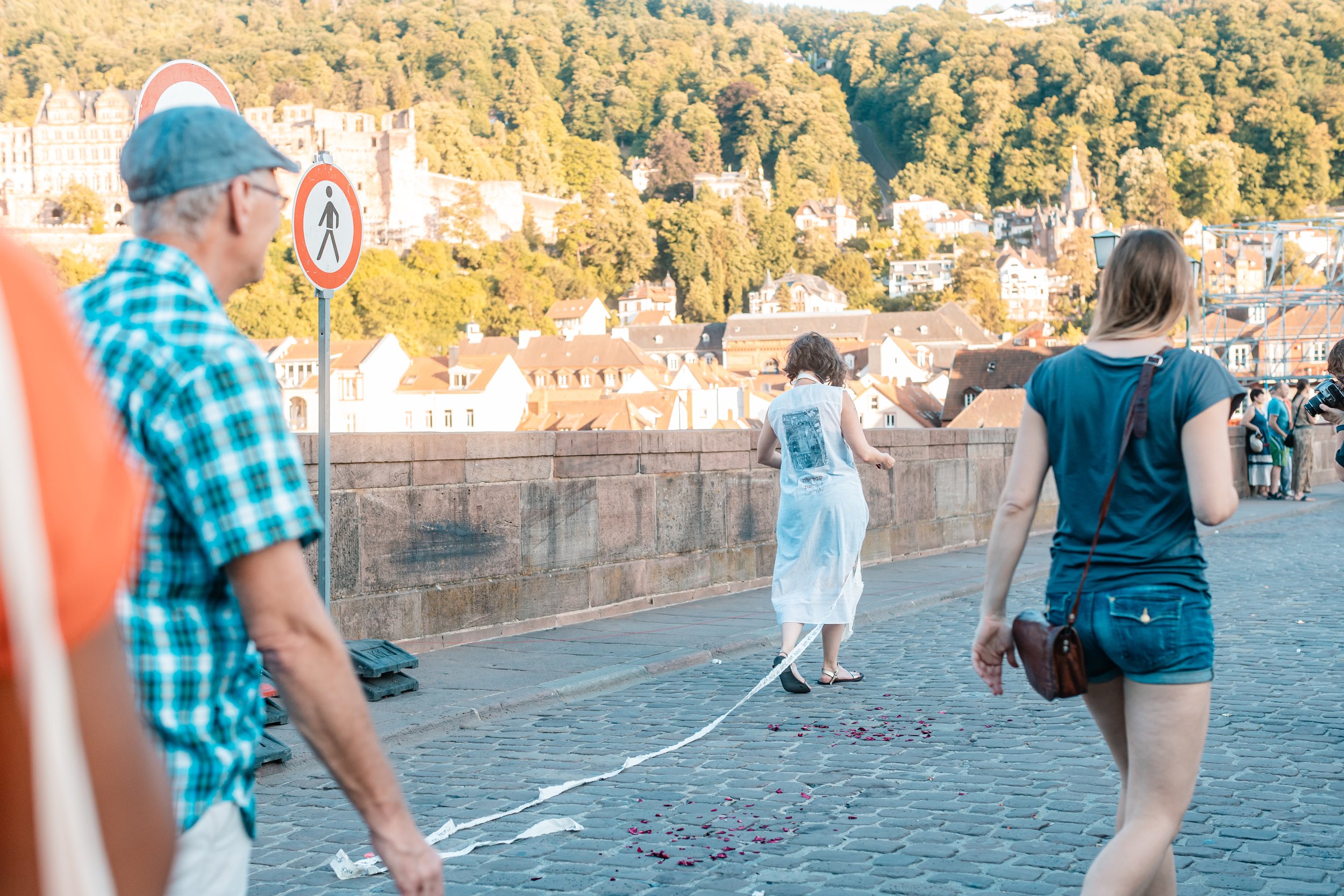

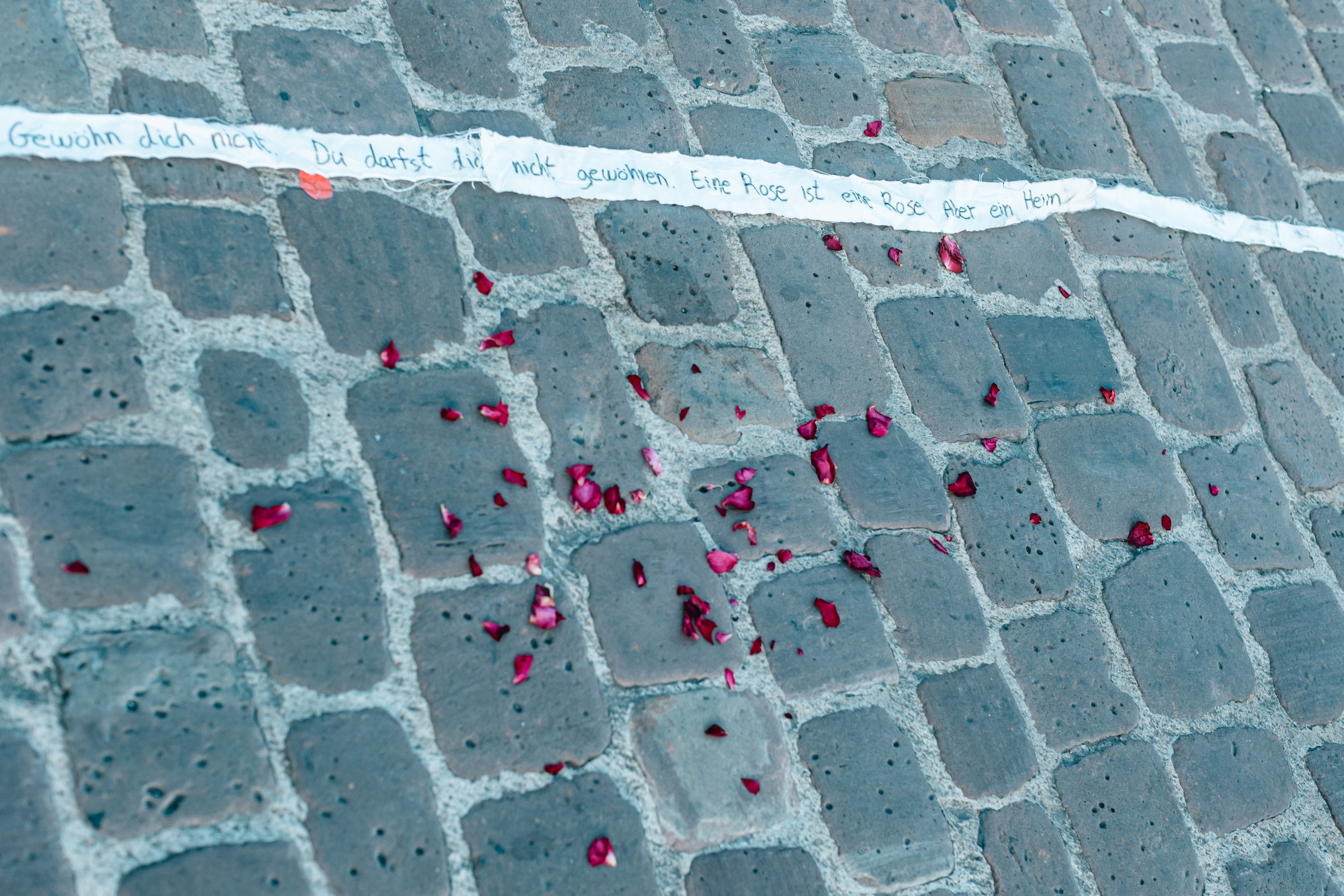

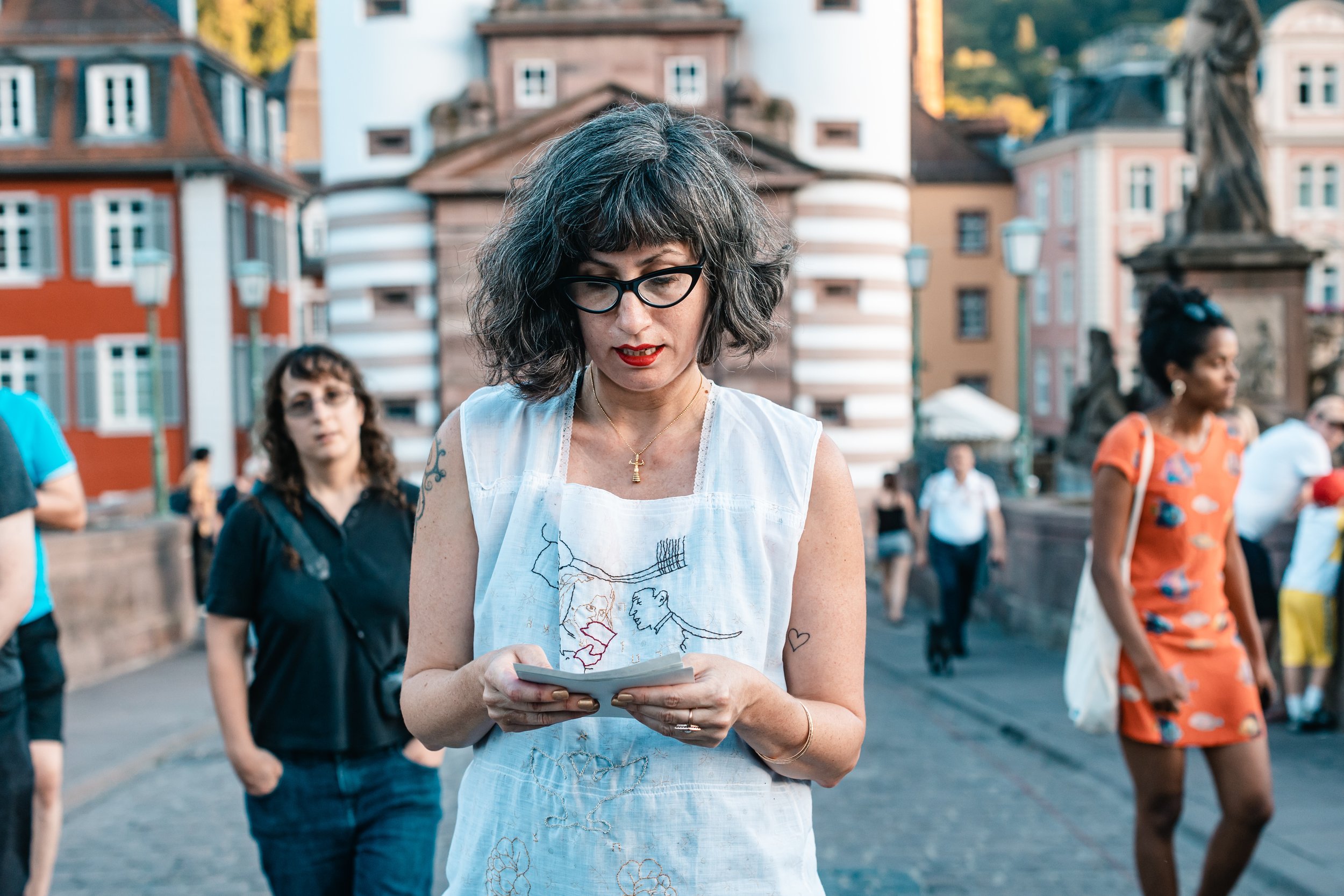
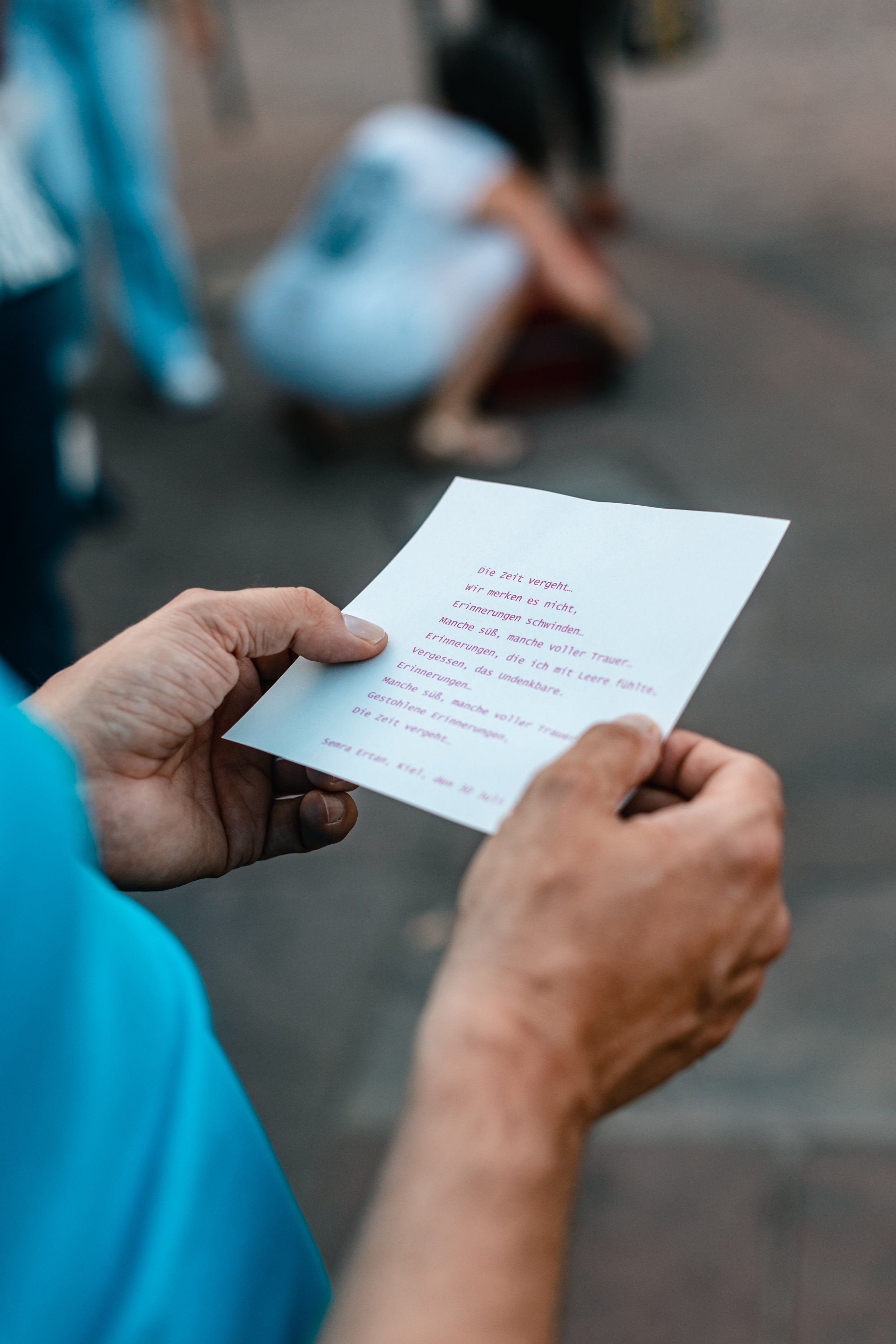
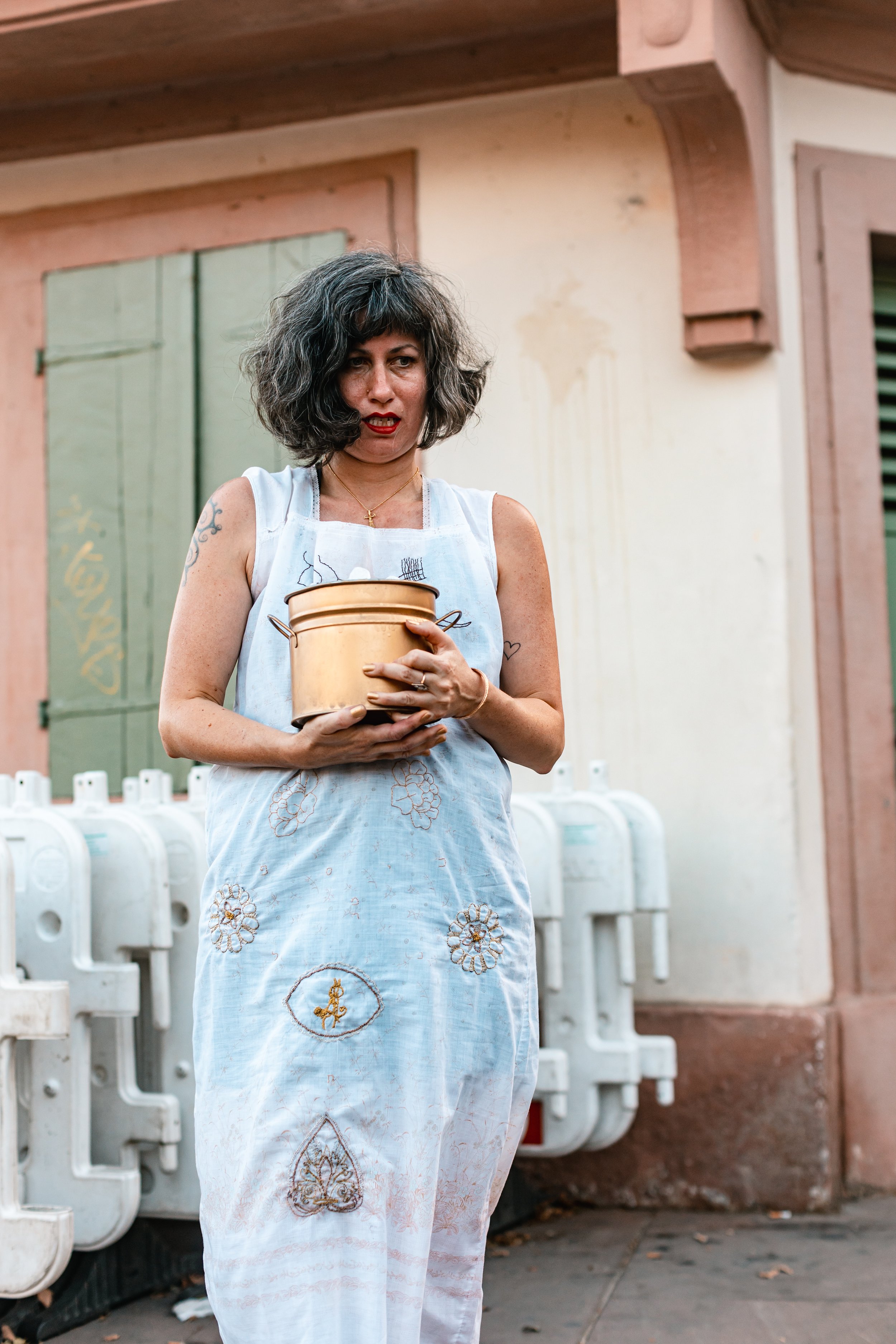
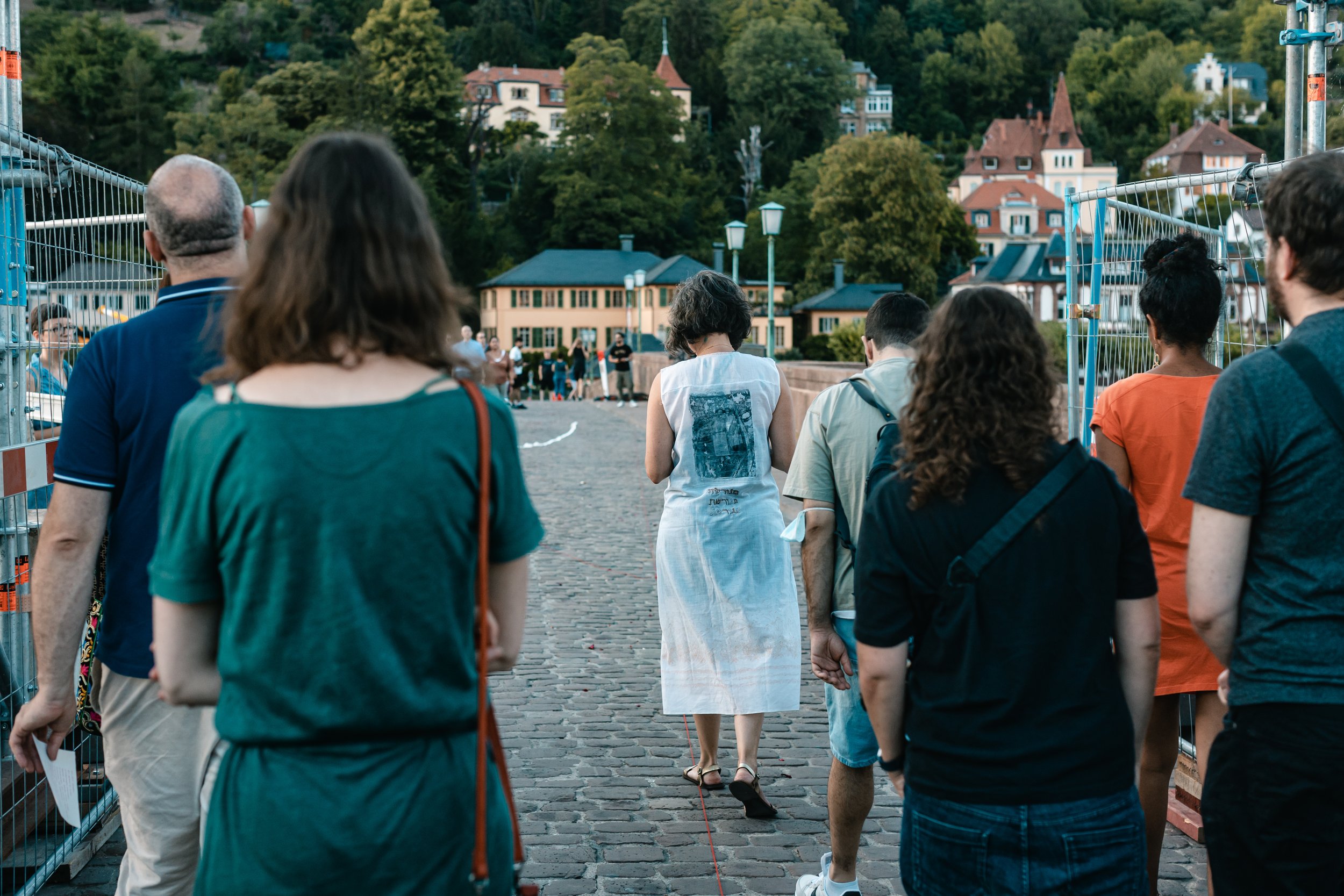
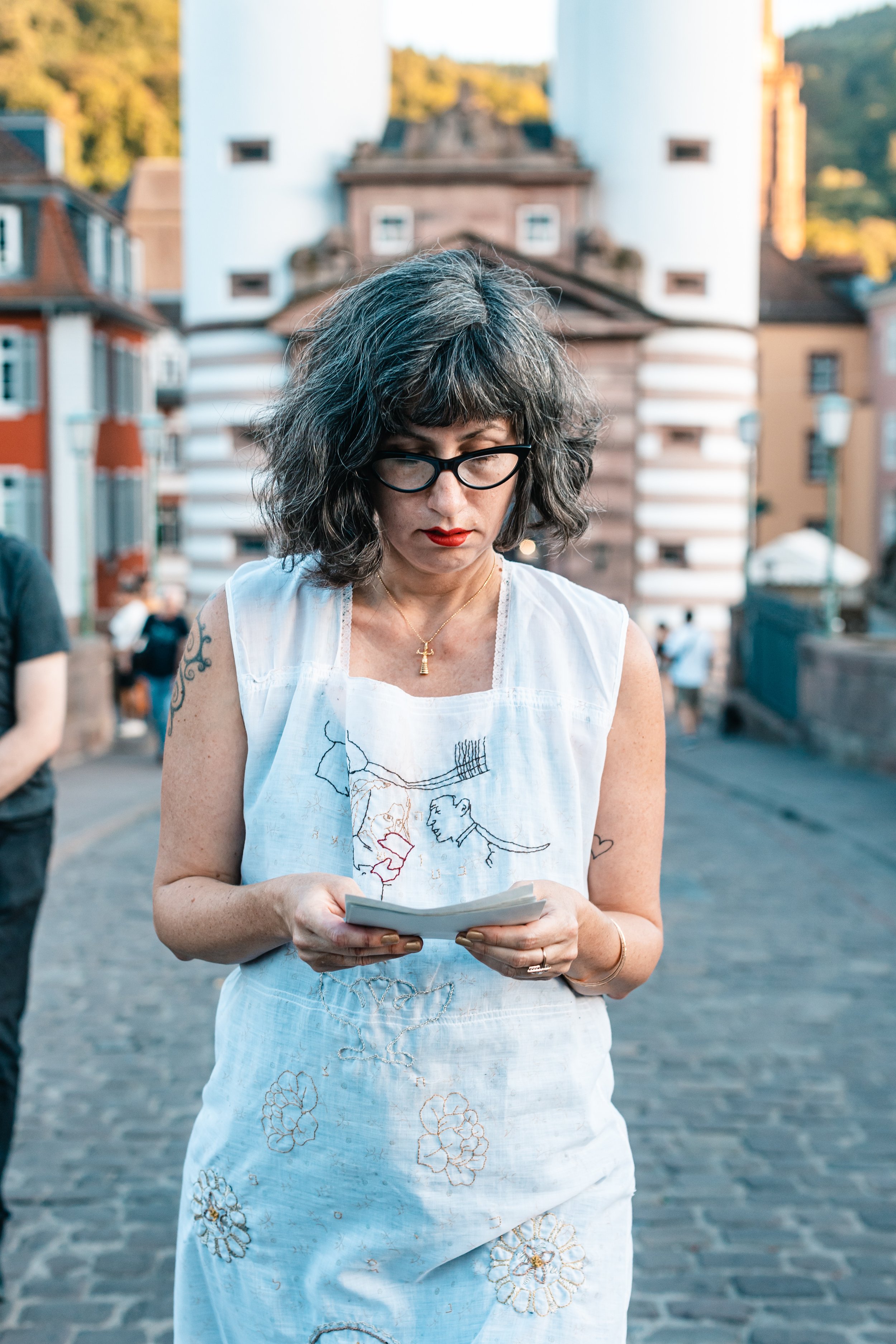



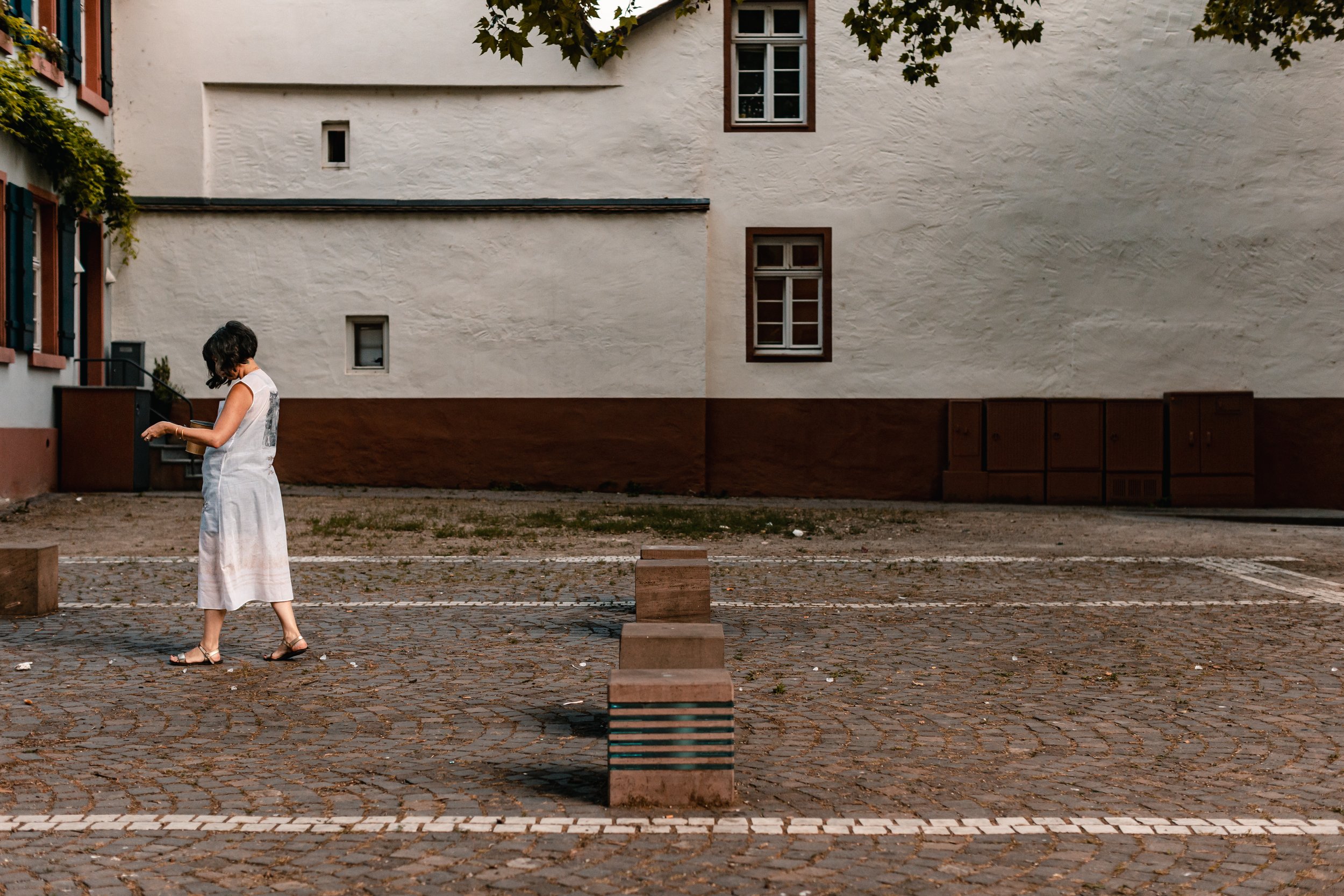

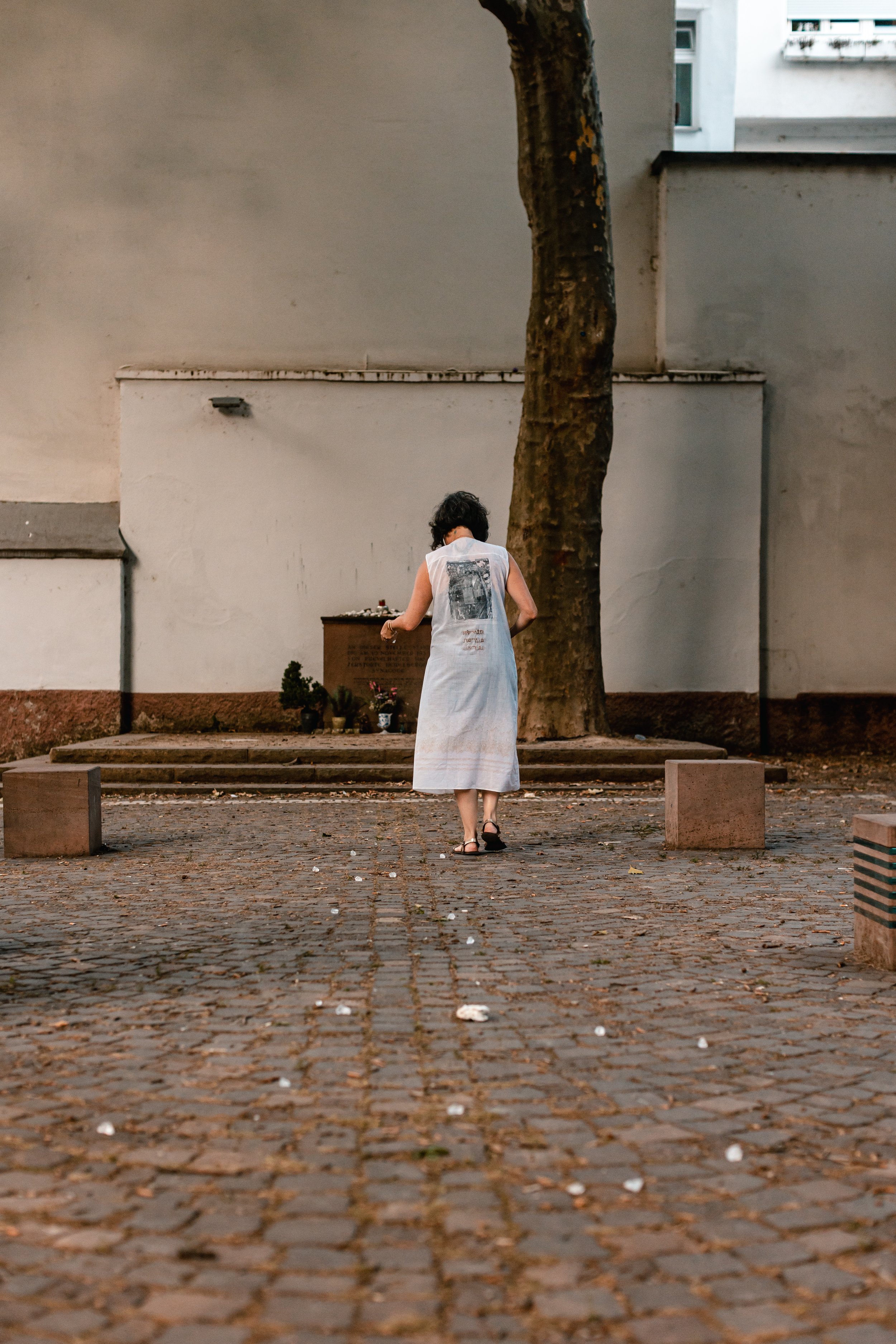
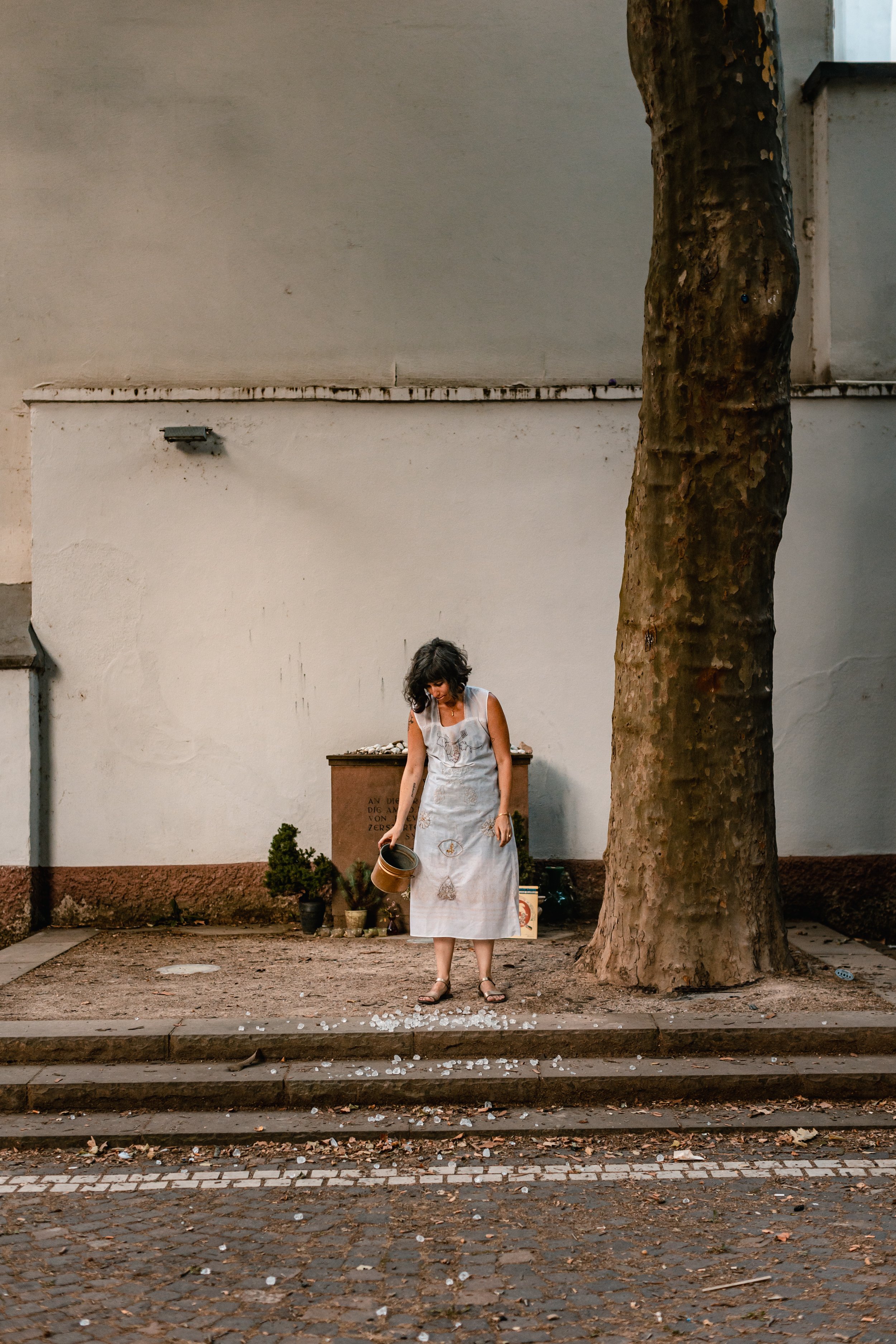
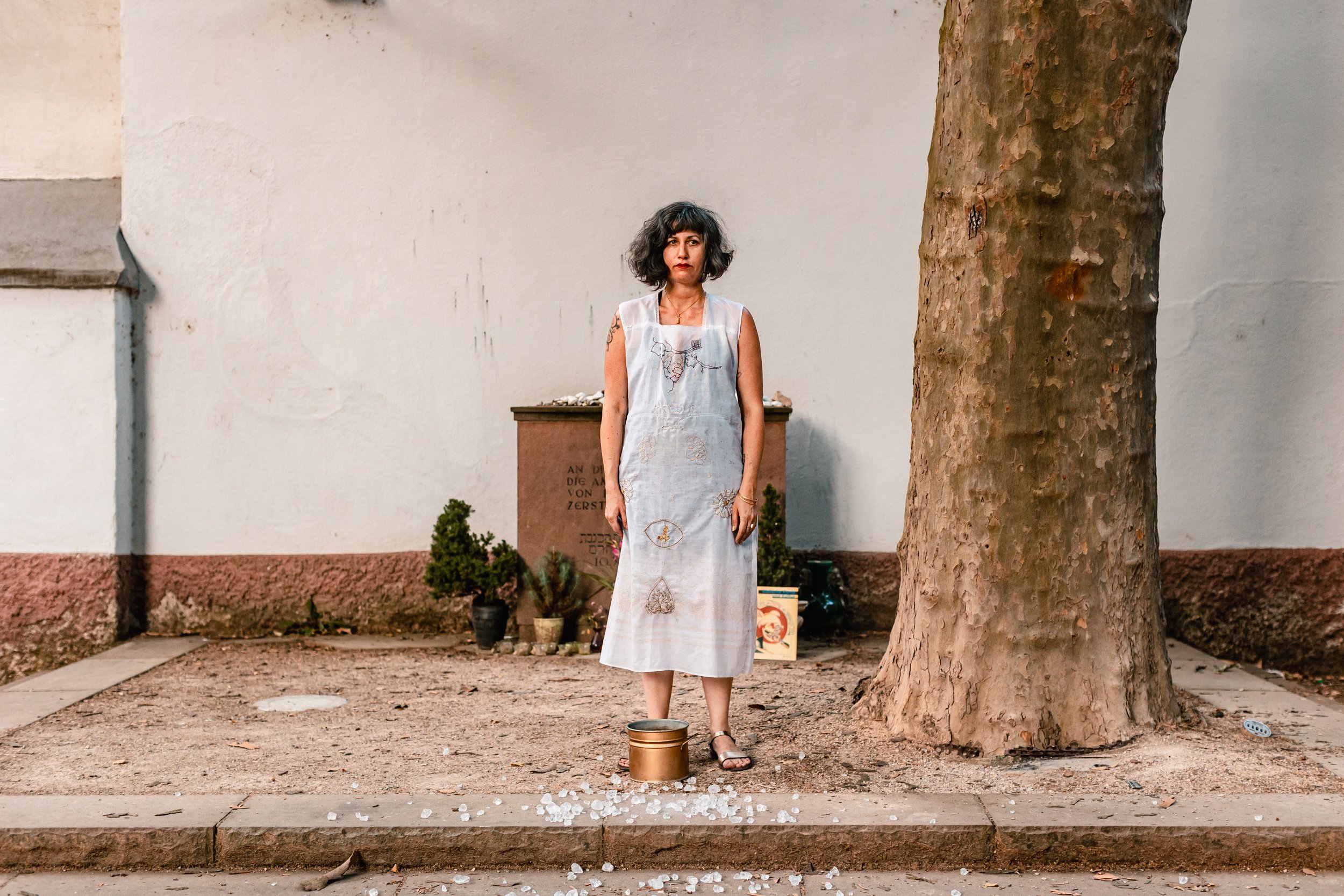
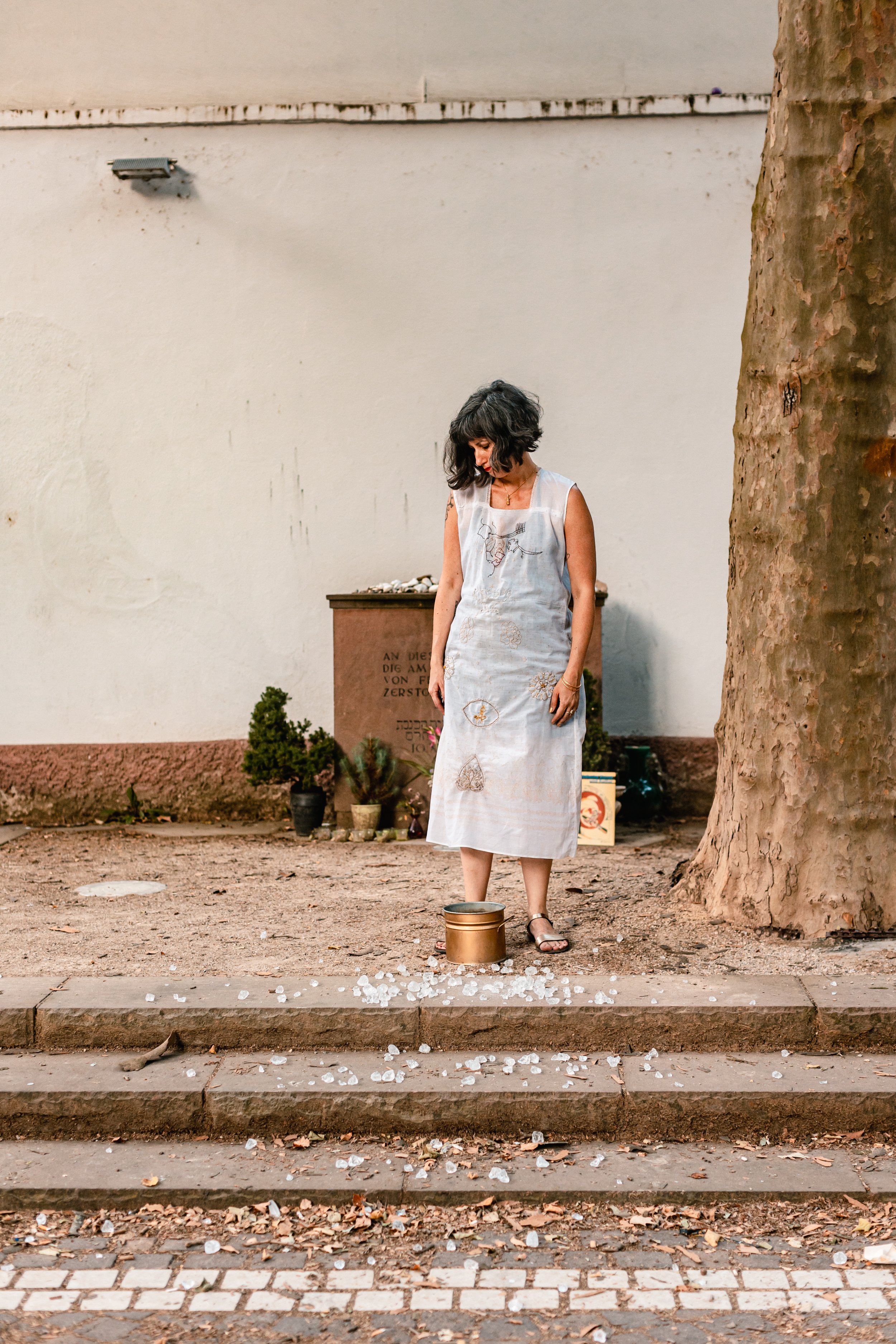
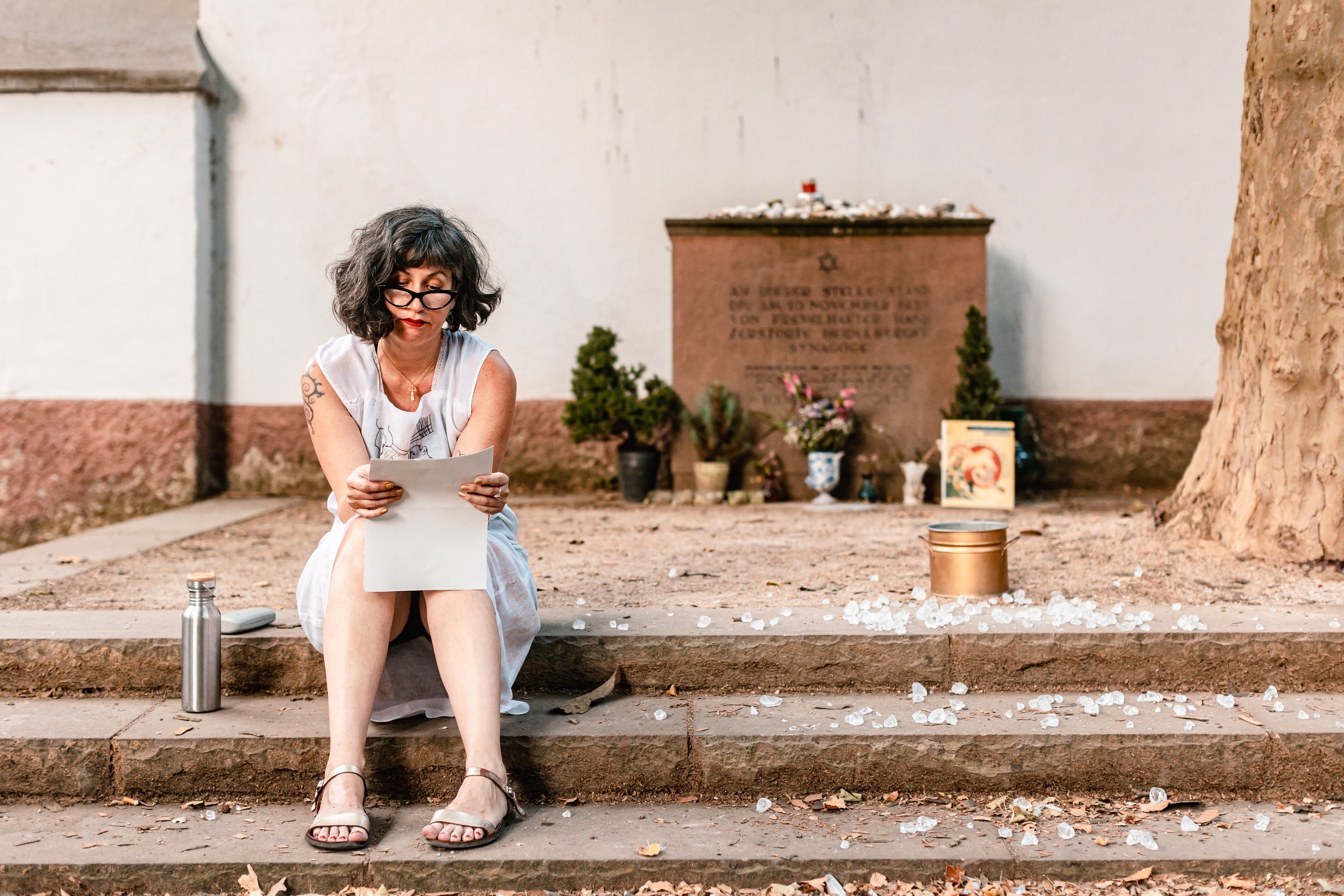
All photos by Joe Pohl
Megorashet: Performance Art Walk on Tammuz 17th as part of the Jewish-Muslim Cultural Days
The 17th day of the Tammuz Hebrew month is a commemorative day that dates back to ancient times and commemorates the destruction of the two temples in Jerusalem. It is considered the day when the wall of the Second Temple was breached by the Romans, resulting in the destruction of the Temple.
By walking 7 times from one side of Heidelberg´s old bridge to the other, and creating 7 actions-rituals, I symbolically go around Heidelberg Castle 7 times and break through its wall.
The Wall and the city of Heidelberg are the only city that remained intact during World War II and was not bombed by the United States.
However, the old bridge of Heidelberg was destroyed by the Wehrmacht to prevent the American troops from entering Heidelberg from the countryside.
The city of Heidelberg has a close connection between the history of the Bavarian Kingdom and the Greek Kingdom. The present Greek flag is based on the Bavarian flag, with the colors white and blue and the cross.
The sculptures from Greek mythology on the bridge then seem to be an appropriation, considering the recent relations between Greece and Germany and the destruction of Greece during the German occupation in the 1940s. At the same time, questions arise about the connection between contemporary Greek and Hellenism. Often, contemporary terms are used as justification for national ideas and concepts, and this raises the question of appropriation even further.
But what does Greece have with Germany? Which memories are visible and which are suppressed?
My grandmother's father, Asher Moissis, who was the chairman of the Jewish community of Salonica before the Nazi occupation, was also the main witness in the trial of Max Merten, the Nazi officer responsible for the deportation (and eventual murder) of the Jews of Salonica.
Merten was tried and imprisoned in Greece in 1959, but not long after, in 1960, he was sent to Germany after the German and Greek governments reached an agreement to give compensation money to Greeks after the destruction of many Greek villages as a result of the occupation and to take in more guest workers* from the destroyed places.
Merten was trialed again in Germany and was released a few months later.
Salonica, Thessanoliki, Selnik, was a great center of the Ottoman Empire with a majority of Jews. Many of them emigrated from today's Turkey to today's Greece, and vice versa. There was a close connection between the places, that's how my grandparents met.
One of the most famous people who was also a guest worker from Turkey, Semra Ertan, who came to Germany as a guest worker and burned herself to death in Hamburg 40 years ago in protest against the racism she experienced in Germany, asks about memories that remain and memories that disappear with time.
Rembetiko singer Roza Eskenazi, who was born in Istanbul and emigrated to Thessaloniki as a child.
Shum, in Hebrew, is garlic, and has had great significance since ancient times for Jewish communities. In Germany, migrants or people who have roots in minority groups are often blamed for smelling of garlic.
Garlic, as is also scientifically proven today, has very many medicinal benefits, and refers to ancient knowledge.
The Shum communities of Speyer, Worms and Mainz were expelled and came to Heidelberg in the 15th century, later also expelled from Heidelberg
Based on Roza Eskenazi's last name, one could assume that she came from these communities. And this despite the fact that she was a Sephardic Jew.
Hilde Domin, who was born in Germany, fled after the Nazi seizure of power and returned after being unable to find a home anywhere else in the world, spent her last years in Heidelberg, where she also died.
She presents the question: What remains homeland? Is emigration a homeland? Is the diaspora a homeland?
The rose, which has several meanings in the Kabala, is perhaps Real, but at the same time represents the presence of holiness and God. A spiritual accompaniment that we can feel everywhere, in every place. From the book The Song of Songs, Shulamit walks in the city looking for her betrothed, the king Solomon. Will she find him? Will we find the homeland? Or will the homeland remain a place of utopia?
The concept of divorce, expulsion, is thus strongly linked. The woman, like the people of Israel, leaves, or is expelled, and through the movement, from place to place, can empower and re-root again and again.
Without claiming a place that belongs to us. We remain the people of the diaspora and we have the right to belong together with other societies, together with other religions and to find our roots in different cultures.